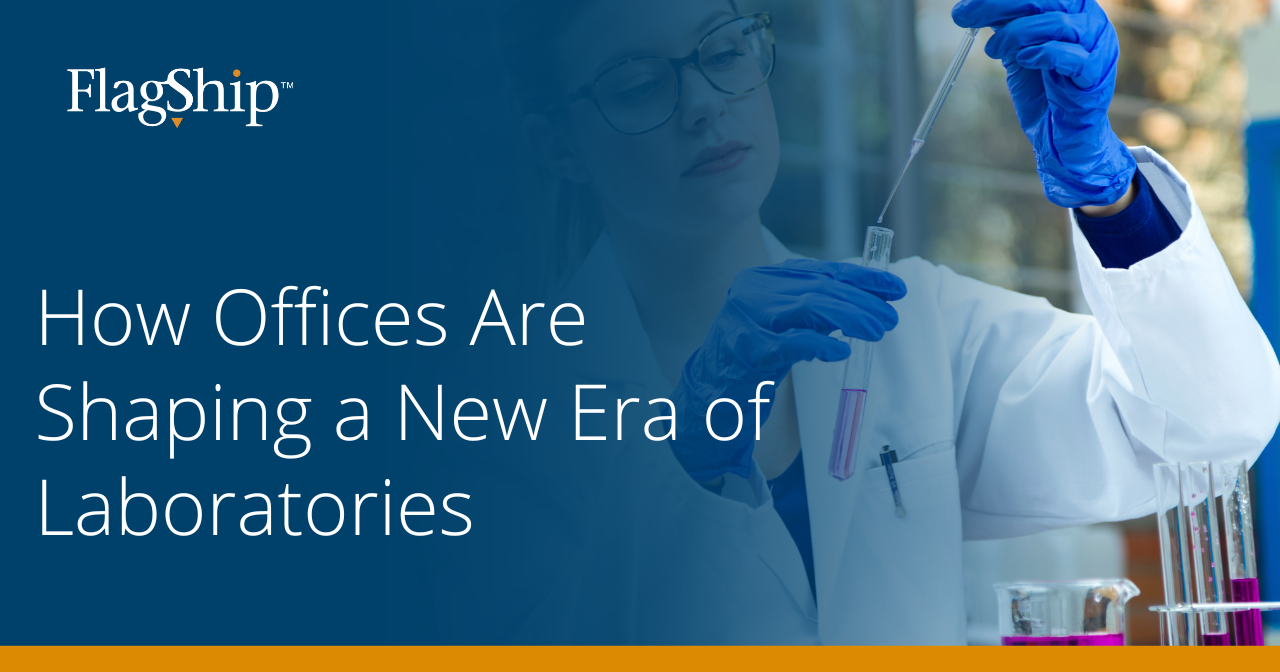
Over the past three years, there’s been a dramatic shift in the way Americans work. A significant portion of the labor force continues to work remotely, at least some of the time, despite many other facets of life returning to their pre-pandemic ways.
The work-from-home trend is particularly pronounced in white-collar industries such as finance and tech, which have traditionally occupied large swaths of office space in major metropolitan areas.
To shed light on this trend, Kastle Systems has been studying keycard, fob, and app access data from the 2,600 buildings and 41,000 businesses it secures. Last week’s 10-city average occupancy was only 49.5 percent.
So, what does the future hold for all this unoccupied workspace?
It should come as no surprise that many large office buildings are now being converted to laboratory space for Biotech companies, responsible for developing everything from pharmaceuticals to medical devices.
After all, the Biotech industry is thriving, driven by increased investment in R&D and advancements in technology that enable more precise and efficient experimentation.
With the continued push for healthcare advancements and the increasing focus on sustainability, the industry is poised for continued growth and success.
Furthermore, lab work requires specialized equipment and trained scientists to be present at all hours. Experiments typically demand constant monitoring and adjustment, making remote work a near impossibility.
For all these reasons and more, labs are a safe bet for real estate investors. Not to mention, they command high rent from prospering Biotech tenants.
The Benefits of Converting Office Space
.png?width=327&height=327&name=Lab%20(2).png) Retrofitting an existing building is a smart option for those looking to reduce their carbon footprint and save on construction and operating costs. Energy efficiency can usually be improved by adding insulation, upgrading windows and doors, and installing energy-efficient lighting and HVAC systems, leading to major utility savings in the long term.
Retrofitting an existing building is a smart option for those looking to reduce their carbon footprint and save on construction and operating costs. Energy efficiency can usually be improved by adding insulation, upgrading windows and doors, and installing energy-efficient lighting and HVAC systems, leading to major utility savings in the long term.
These types of improvement projects are typically completed more quickly than new construction, presenting a huge draw to potential occupants.
Future tenants may also be attracted by a converted facility’s proximity to the city. Many offices-turned-labs are in metropolitan areas, where talent is prevalent and Biotech companies tend to thrive.
Designing & Building Out Lab Space
Although there are plenty of good reasons to utilize existing office space for lab work, this type of transformation comes with many challenges – starting with space management.
The size and dimensions of lab equipment, including safety cabinets, fume hoods, and autoclaves, may not be compatible with the available space. Additionally, existing electrical and plumbing systems may not be sufficient to support the equipment, requiring expensive upgrades or modifications.
Labs also require specific environmental conditions, which can be difficult to achieve in a retrofitted space. For example, temperature and humidity must be closely regulated to ensure accurate and reliable research results.
Every lab is made up of countless critical systems, and each system is comprised of its own unique implements. It’s crucial that you’re not only familiar with these systems, but also willing to adapt your space for them.
Post-construction Considerations
When it comes to managing lab space, design and buildout are just the first pieces of the puzzle. Labs and their equipment require constant maintenance to ensure they operate safely and effectively..png?width=327&height=327&name=Blog%20Images%20(5).png)
Like offices, labs contain HVAC systems, lighting, plumbing, draining, and other critical systems. But unlike many offices, labs must comply with strict protocols to guarantee the efficacy of these systems and the credibility of their work.
Maintaining these systems properly demands special skills and expertise not always possessed by property owners or even the Biotech tenants themselves.
For many, outsourcing lab maintenance and support is more practical than performing them in-house. Not only do lab support providers perform a range of services, but they know how to optimize your lab systems and achieve greater cost control, visibility, and quality assurance.
Flagship provides a host of critical lab support services to help ease the burdens of lab management. We know what it takes to keep your lab running safely and smoothly from the very beginning.
Our fully trained and certified staff handle everything from maintenance and repair to equipment setup and certification, freeing up both lab and facilities professionals to focus on their core competencies.
Talk to an expert today to learn how we can help your lab run more effectively and efficiently with our comprehensive lab services.





Leave a Comment